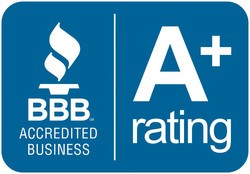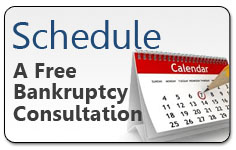Find out the facts:
Bankruptcy does not destroy your credit.
How to get a bankruptcy fresh start.
You can buy a house within 2-3 years after bankruptcy.
You will not lose your security clearance.
You can be among the many millionaires that used bankruptcy to help them build their financial wealth.
And more…
by John G. Merna
February is fresh start month. Why it is important?
Most people live paycheck to paycheck. The question almost constantly on most people’s how do I get ahead financially? If you are plagued with bad credit or unpaid debt this question is even more perplexing.
February is fresh start months for many reasons.
The first reason and an important one that a bankruptcy fresh start is the topic is that it’s beginning of the year. You have had the month of January to determine whether your New Year’s resolutions are going to pan out. Everybody has a lot of high hopes but the reality of committing long term to a result often makes those high hopes fade. So February is a good time to refocus on your financials and determine to get a fresh start. The second reason that February is fresh start month is because a lot of families get large tax refunds this month. Tax refunds are one of the largest surges of cash that most families receive throughout the year. The decision that these refund receivers are faced with is should they use the refund money to pay their delinquent or overwhelming debt or should they use it for some other necessity. The inclination is to throw tax refund money at your bad unpaid debt to get yourself out of the hole. The real question you should be asking is whether paying debt, when you already have bad credit, is going to solve the problem?
Fresh Start Month is really about determining what is the best plan for getting ahead financially.
Here are a few things you should analyze:
- Are you behind on your debt?
- Is your credit score already bad?
- Will the tax money pay a significant amount of your debt?
- Can you pay off the remaining debt in a reasonable amount of time without further damaging your credit?
- Are you still vulnerable to other problems even if you put the money towards the debts like judgments, liens, garnishments, etc?
As many of you know from examples in your life, sometimes it is better to take a step back in order to move forward. This is also true when dealing with financial issues.
If your financial/credit situation is irreparably damaged, often it is better to keep the tax refund money and consider using part of it to file bankruptcy to eliminate the debt and put you in a position to rebuild your credit score as quickly as possible.
Somethings that most people don’t realize is a bankruptcy filing has a minimal effect on your credit.
As I like to tell clients, “The bankruptcy filing is like the period at the end of a long sentence that is your bad credit.” It stops the continued negative reporting to permit your score to get your bankruptcy fresh start and begin recovering your credit score.
There are other blogs on our website that go into more about the true effect of bankruptcy on your credit score and you should also check out our credit recovery program.
So to review, you assess whether it’s better for you to take a step backwards to consider the big picture of your finances, such as filing whether to file bankruptcy, by looking at three area:
- Credit: Is it good or bad already?
- The lower the credit score greater I would favor of the bankruptcy since you can recover your credit score to the point of buying a house two or three years after bankruptcy.
- Do I have a feasible plan to get out of debt in a reasonable amount of time?
- If you are just throwing your tax money down the bad debt “well” or is the money is going to help your debt situation no more than a drop of water is going to help a camel in the Sahara, I would look into bankruptcy.
- Once behind on debt, generally your interest rate goes up and penalties and late fees start accruing. Digging out of such a hold by paying only minimum payments monthly really is the hole filling faster then your can dig yourself out.
- Do you have disposable income every month? Will paying the debt limit your future?
- People tend to forget what they are giving up when they are attempting to pay their bad debt. They are generally not contributing to retirement plans, don’t have college savings, sometimes don’t even have medical insurance. When your credit is bad, it is not worth thousands of dollars to save it. Think about it. What do you have after you pay off bad debt? Bad credit. And you still need to go through several years to build it.
Most people live paycheck to paycheck and have little or no disposable income after paying household expenses. Let’s say you have $300 left over each month to service your debt. And you have $20,000 of revolving credit card debt. A straight division of 20,000 x 300 show you it takes you almost 5 1/2 years to pay that off the $20,000 if they charged zero percent interest. Unfortunately, interest rates on credit cards are very high. In reality, it would take you closer to 10 years to pay off the debt with the high interest you are being charged and you would pay closer to twice the amount. So what can $40,000 do for you? You can pay for a car or two. You can pay a lot of college expenses. You can sleep better at night by not stressing about the bills. So take advantage of February is fresh start month and think about your financial situation before your throw that valuable tax refund down the toilet of bad debt.
This is John Merna wishing you a happy Fresh Start February and a prosperous future. Give us a call at 800-662-8813 today to get your bankruptcy fresh start.



